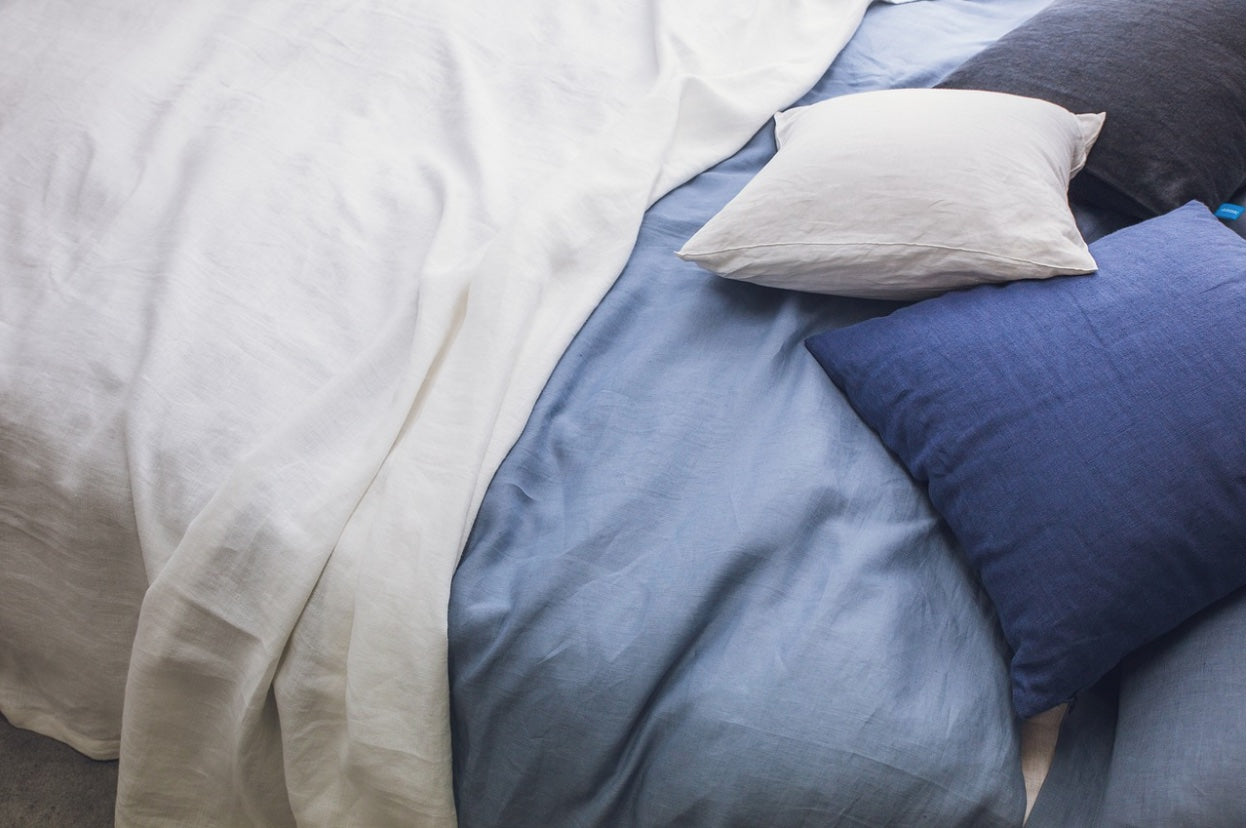Although fast fashion continues to dominate the textile industry and uphold the mainstream fashion business model, sustainable fashion is steadily expanding at an impressive pace.
There are many ways to support sustainable fashion. The essential principle is to make eco-friendly choices in all aspects of our lives, including bedrooms. Nothing is sweeter than a good night's sleep, and comfortable bedding is the key.
In today's blog post, we'll define eco-friendly bedding and find out which materials are most sustainable for an earth-friendly bedroom. Let's dive in!
Why Choose Eco-Friendly Bedding?
Eco-friendly bedding refers to bedding products designed to minimize environmental impact. It offers numerous benefits for your sleep experience.
Minimize Environmental Impact
Eco-friendly bedding reduces emissions into the atmosphere. Fabrics like organic cotton and bamboo are sourced from farmers who practice sustainable agriculture. Sustainable agriculture limits water use, promotes healthy soil, and reduces pollution. Additionally, eco-friendly bedding often requires less energy and fewer chemicals during production, further minimizing the carbon footprint.
Improve Your Health
Many conventional bedding materials contain chemicals and toxins that can be harmful to your health. Polyester, for example, releases microplastics when washed, and its production process is highly polluting.
In contrast, sustainable bedding is free from pesticides, synthetic dyes, and other toxic substances - providing a healthier sleep environment. This is especially beneficial for individuals with allergies or sensitive skin.
Enhance Durability and Long-Term Savings
Eco-friendly bedding is crafted for longevity, making it a smart long-term investment. Natural fibers like organic cotton and bamboo are durable, retaining their softness even after numerous washes. Their extended lifespan means fewer replacements, reducing both waste and costs over time.
Optimize Your Sleep
Sustainable bedding is often a premium product, which means manufacturers prioritize both quality and comfort. High-quality natural fibers provide a luxurious feel while enhancing breathability - ensuring a cool, restful night’s sleep.
What Should You Look for When Choosing?
Now that you understand the benefits of eco-friendly bedding, how can you select the right option for your needs? To help you make informed choices, here are some key factors you need to consider:
-
Natural Materials: Look for natural materials like eucalyptus silk, linen, or hemp. These fibers are generally more sustainable and biodegradable.
-
Certifications: Keep an eye out for certifications like GOTS or OEKO-TEX to ensure the absence of harmful chemicals.
-
Production Process: Research brands that use environmentally friendly practices and uphold ethical labor standards.
-
Dyes and Finishes: Choose bedding that is dyed with non-toxic, low-impact dyes and does not have harmful finishes.
-
Durability: Invest in high-quality bedding that lasts longer. Reducing the need for frequent replacements minimizes waste and extends product lifespan.
-
Care Instructions: Eco-friendly bedding should be easy to care for without requiring harsh detergents or excessive washing.
-
Sustainable Packaging: Look for brands that use recyclable or minimal packaging to reduce waste.
-
Brand Transparency: Research the brand’s commitment to sustainability and ethical practices. Look for transparency in their supply chain.
Keep these essential points in mind, and you can easily choose earth-friendly bedding.
What Are the Most Sustainable Materials for Bedding?
Finally, let's turn our focus to the sustainable materials for environmentally friendly bedding.
Below are several natural fabrics that are sustainable and biodegradable.
Eucalyptus Silk
Eucalyptus silk bedding offers a luxurious and soft touch while being naturally hypoallergenic. This sustainable material is derived from eucalyptus trees. They grow quickly and thrive without the need for harmful chemicals or pesticides.
At Ethical Bedding, you can explore a variety of eucalyptus silk products, including elegant duvet covers, pillowcases, and fitted sheets. The fabric's natural temperature-regulating and moisture-wicking properties ensure a comfortable and refreshing sleeping experience all night long.
Bamboo
Bamboo bedding is naturally resistant to bacteria and hypoallergenic. This eco-friendly material is highly sustainable, as bamboo grows quickly and doesn't require chemical fertilizers or pesticides.
At Ethical Bedding, you can find bamboo in a wide range of products, from luxury towels and pillows to duvets and CocoCore mattresses. Its softness and excellent moisture-wicking properties keep you comfortable and dry throughout the night.
Organic Cotton
Organic cotton requires significantly less water and energy than conventional cotton. It is grown without synthetic pesticides and fertilizers, which helps nurture healthier soil and promotes greater biodiversity. Thus, organic cotton can reduce its environmental impact.
But not all organic cotton is the same. Some may use very few synthetic pesticides and fertilizers.
For the best quality, look for GOTS-certified organic cotton, which ensures the highest sustainability and ethical standards.
Linen
Linen, made from fast-growing flax, needs fewer pesticides and less water compared to traditional cotton. Organic linen is an even better option, as it avoids synthetic fertilizers and pesticides entirely. This makes it a significantly more sustainable material.
Linen bedding is lightweight and breathable. It can become softer with each wash, which makes it a favored choice for summer sleep.
Hemp
Hemp is a powerhouse material - it’s naturally resistant to mold and bacteria, requires minimal water to grow, and thrives without pesticides. It is also used for our CocoCore Mattress, making it an excellent option for eco-conscious sleepers.
TENCEL™ Lyocell
TENCEL™ Lyocell is a semi-synthetic fiber made from sustainably sourced eucalyptus wood pulp. It stands out for its closed-loop production process, which recycles water and minimizes waste.
However, not all Lyocell is created equal, so always check for responsible manufacturing practices.
Final Words
Choosing sustainable bedding supports the environment and improves your sleep quality. Eco-friendly materials like eucalyptus silk, bamboo, and organic cotton reduce ecological impact while promoting health.
By making informed choices, you create a sustainable bedroom. Embrace eco-friendly bedding for restful nights.




Share:
The Science of Sleep: Proven Ways to Improve Sleep Quality and Wake Up Energised
Memory Foam vs Natural Mattresses: Why We Said No to Foam (And Yes to CocoCore)